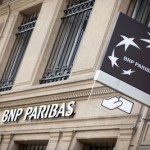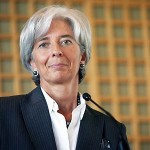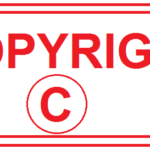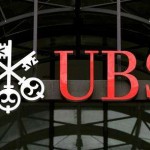BNP Case Shows French Companies Learn U.S. Law Hard Way
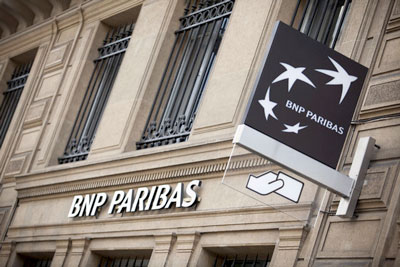
Some French companies have been slow to learn that doing business in the U.S. means obeying its laws.
U.S. authorities are seeking a record fine against BNP Paribas SA (BNP) that would make it the first French bank since President Barack Obama took office to be penalized for doing business with sanctioned countries.
French companies already dominate the ranks of corruption settlements, however, both in numbers and the size of penalties. Among the top 12 largest bribery penalties paid in the U.S., Total SA settled for $398 million last year, Technip SA for $338 million in 2010 and Alcatel-Lucent SA for $137 million the same year.
“There is a different culture with regard to dealing with the government and cooperating with the government than there is in the United States,” Michael Volkov, a former federal prosecutor who defends companies in corruption probes, said in an interview. “In many of these cases involving French companies there’s just dragging of feet and a digging in of fingernails on issues that really would not hold up other companies and as a result they pay more for their violations.”
BNP, which is under investigation for transactions involving Sudan, Iran and Cuba, may be asked to pay more than $5 billion to resolve the matter, the highest sanctions-violation penalty ever, two people familiar with the talks have said. Prosecutors are also seeking a guilty plea, the people said, after winning one from Credit Suisse Group AG (CSGN) this week to end a three-year tax investigation. An agreement on BNP, France’s largest bank, could come as soon as next month, according to the people, who asked not to be identified because the talks are private.
Feet Dragging
Stephane Le Foll, the cabinet minister who is the French government spokesman, declined to comment on the BNP case when asked about it yesterday at his weekly press conference.
The French government hasn’t been involved in the U.S. discussions over Paris-based BNP and views the case as a legal matter that must follow its own course, according to three people familiar with the government’s position.
France seldom investigates international corruption and too few of those cases make it to trial, according to the most recent report from the Organization for Economic Cooperation and Development. Just one company has been convicted of bribing foreign officials in France since the country outlawed the practice, and that’s on appeal.
Seriously Regulated
France’s apparent ambivalence about rooting out corruption — until 2000, bribes paid to foreign public officials were tax deductible — gave companies the false impression that they were safe from prosecution elsewhere, according to Stephane Bonifassi, a Paris-based criminal defense lawyer who specializes in corruption cases at Lebray & Associes.
“We haven’t understood that there was something serious happening in the U.S.,” he said in an interview. “The business community is not used to being seriously regulated and we are going to learn it the hard way.”
Still, Bonifassi said laws on foreign companies’ dealing with U.S.-sanctioned countries go too far, “pushing an agenda that isn’t shared by everyone.”
BNP said in 2011 that it was reviewing operations to see how they complied with the Office of Foreign Assets Control’s rules after talks with the U.S. authorities. OFAC administers and enforces economic and trade sanctions based on U.S. foreign policy and national security goals. The bank’s review focused on transactions made between 2002 and 2009, BNP said last week.
Severe Penalty
Prosecutors argue that a more severe penalty against BNP is justified because the misconduct was more egregious and the bank didn’t fully cooperate with the investigation, according to one person with knowledge of the matter.
BNP spokeswoman Carine Lauru declined to comment on the investigation, the allegations or the bank’s cooperation when contacted by telephone yesterday. BNP said on April 30 that it may need to pay far more than the $1.1 billion it’s set aside for the matter.
The Justice Department is also building a bribery case against Alstom SA that’s likely to result in one of the largest U.S. anti-corruption enforcement actions, two people with knowledge of the probe said in March. Lack of cooperation has also been cited by prosecutors in that probe of Alstom contracts in Asia.
“Alstom is cooperating closely, actively, and in good faith,” according to a March statement from Robert Luskin, Alstom’s lawyer at Patton Boggs LLP in Washington. The investigation hadn’t reached a point where the fine’s size could be estimated, according to the statement.
Cooperation Discount
Luskin and Christine Rahard, head of communications at Alstom, declined to comment when contacted this week.
Companies that cooperate can receive a discount on the penalty, under U.S. sentencing guidelines. French lawyers say that what U.S. prosecutors might perceive as lack of cooperation or foot-dragging can be traced to the country’s criminal justice system, in which negotiated settlements are rare.
“Negotiating with enforcement authorities is not in the genetics of French culture,” said Thierry Marembert, a criminal defense lawyer in Paris. “Until very recently there was no way to negotiate or do a plea bargain in France.”
Most of the BNP trades under investigation wouldn’t have broken French or European law, according to a person familiar with the matter. They fall under U.S. rules because they were processed in U.S. dollars.
Projecting Politics
“Countries are trying to protect their own interests from financial crime, and project their own political views,” said Michael Cherkasky, who is overseeing HSBC Holdings Plc (HSBA)’s compliance with its settlement over claims it broke anti-money laundering and sanctions laws. The BNP probe shows a continuing trend in extraterritoriality, where one country tries to get another to play by its rules, he said.
In addition to HSBC’s settlement, fellow British banks Standard Chartered Plc (STAN), Lloyd’s Banking Group Plc and Barclays Plc reached accords with the U.S. over their dealings with countries covered by OFAC rules. Swiss and Dutch banks have also settled investigations into transactions with states subject to U.S. sanctions. As part of their settlements, they acknowledge responsibility for the conduct without having to plead guilty.
Those seven settlements together are less than the $5 billion-plus BNP is said to face to resolve the case.
Guilty Plea?
Prosecutors met with BNP officials this month and are still discussing settlement terms, including the type of charges and whether the parent company or a subsidiary would plead guilty, one of the people has said.
A guilty plea would be a departure from previous OFAC cases which typically ended with deferred prosecution agreements that spared offending companies from criminal prosecution. The largest settlement was HSBC’s at $1.9 billion in 2012.
And while France leads countries among the top dozen U.S. foreign corruption settlements with three, Germany’s Siemens AG paid the most, with $800 million in 2008 and a guilty plea. Daimler AG signed a deferred prosecution agreement to end another bribery probe. Magyar Telekom Nyrt also signed a DPA in 2011. Its majority-owner, German telecommunications leader Deutsche Telekom AG, settled with a non-prosecution agreement and took responsibility for the conduct.
Cooperation allows prosecutors to do more investigations than they could if companies fought everything, according to Matthew Axelrod, a former senior Justice Department official.
“There’s real benefit to the department, but in order to ensure that benefit keeps coming you have to reward it when people cooperate, otherwise what incentive do they have?” Axelrod, now a partner at Cohen Milstein Sellers & Toll Pllc in Washington, said in an interview.
“You also do that by making sure that when people don’t cooperate they pay a price,” he said.
Source: bloomberg









